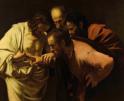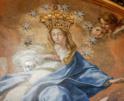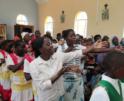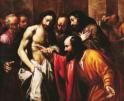
Faith
At the time of the Vietnam conflict, opinions varied as to its moral propriety, although Pope Paul VI argued strongly for the cessation of the conflict by negotiation and consistently tried to bring the warring parties to the table.
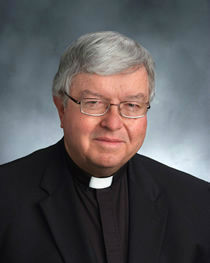
Doyle
Q. My husband was an officer in Vietnam, and he gave an order that probably killed several of the enemy. He says that, if he had to do it over, he would do it again in order to save his men. But he doesn't expect to ever go to heaven. Is he right? (Greensboro, North Carolina)
A. At the time of the Vietnam conflict, opinions varied as to its moral propriety, although Pope Paul VI argued strongly for the cessation of the conflict by negotiation and consistently tried to bring the warring parties to the table. In 1968, the U.S. Catholic bishops issued a pastoral letter calling upon Congress to allow selective conscientious objection.
But at the same time, Catholics were never prohibited from participating in the hostilities. So it could well be that your husband felt that the war, and his own participation in it, were morally justified in preserving freedom and preventing Communist aggression.
The Catechism of the Catholic Church does say that even in a just war, "non-combatants, wounded soldiers and prisoners must be respected and treated humanely. Actions deliberately contrary to the law of nations and to its universal principles are crimes, as are the orders that command such actions. Blind obedience does not suffice to excuse those who carry them out" (No. 2313). The My Lai massacre, for example, fails any moral test; but it does not seem, from what you say, that your husband was involved in any such atrocity; he sought only to protect the men in his charge who were under attack.
It saddens me that he feels he has forfeited any chance of eternal salvation; I can't even imagine what a heavy burden that must be. Why not suggest that he talk to a priest, be assured of God's mercy and perhaps confess any moral misjudgments he may have made, if there were any?
Q. Recently, while watching EWTN, I heard a priest say that some theologians now believe that John the Baptist was born without original sin. This was new information for me, but then I looked at the Gospel of Luke (1:15) where the angel Gabriel tells Zechariah that his son John will be "filled with the Holy Spirit even from his mother's womb."
I asked my local priest and he said that many people are great and holy but only Mary was born without original sin. What is the current thinking of the church? Is there something new that I missed? (Clinton, New Jersey)
A. Other than Jesus, only the Virgin Mary was conceived without original sin. That is the defined doctrine of the church, which is celebrated on the feast of the Immaculate Conception. With regard to John the Baptist, there has never been any definitive declaration by the church (by way of a conciliar statement or infallible papal pronouncement) that he was born free of original sin.
However -- and it may not be generally known by Catholics -- there is a common and long-held belief within the church that this is so. That belief is based on the scriptural passage that you cite (Gabriel's words to Zechariah) and also on Luke 1:41 where, upon Mary's visiting Elizabeth, the baby (John) recognized Jesus and "leaped" in Elizabeth's womb. The Catholic Encyclopedia says: "As the presence of any sin whatever is incompatible with the indwelling of the Holy Ghost in the soul, it follows that at this moment John was cleansed from the stain of original sin."
Nearly every saint's feast day is celebrated on the day of the person's death, the day presumed to mark that saint's entrance into heaven. The only two exceptions are Our Lady and John the Baptist, who both have feast days marking their births; long ago, St. Augustine noted that the reason for this is the church's common belief that John entered the world freed (in the womb) from original sin.
- - -
Questions may be sent to Father Kenneth Doyle at askfatherdoyle@gmail.com and 30 Columbia Circle Dr. Albany, New York 12203.
- Father Kenneth Doyle is a columnist for Catholic News Service
Recent articles in the Faith & Family section
-
Wounds, not scarsJaymie Stuart Wolfe
-
A special collection in the liturgy libraryFather Robert M. O'Grady
-
Witness to a Transfiguration in KenyaMichele Miers
-
Understanding the ScripturesScott Hahn
-
'Cabrini' does extraordinary job of bringing saint to lifeBishop Nicholas DiMarzio

